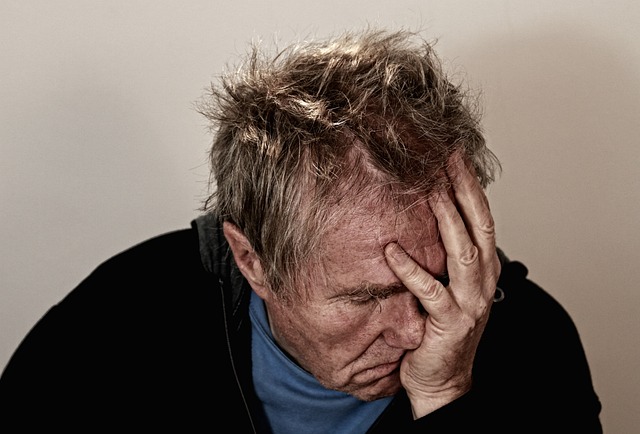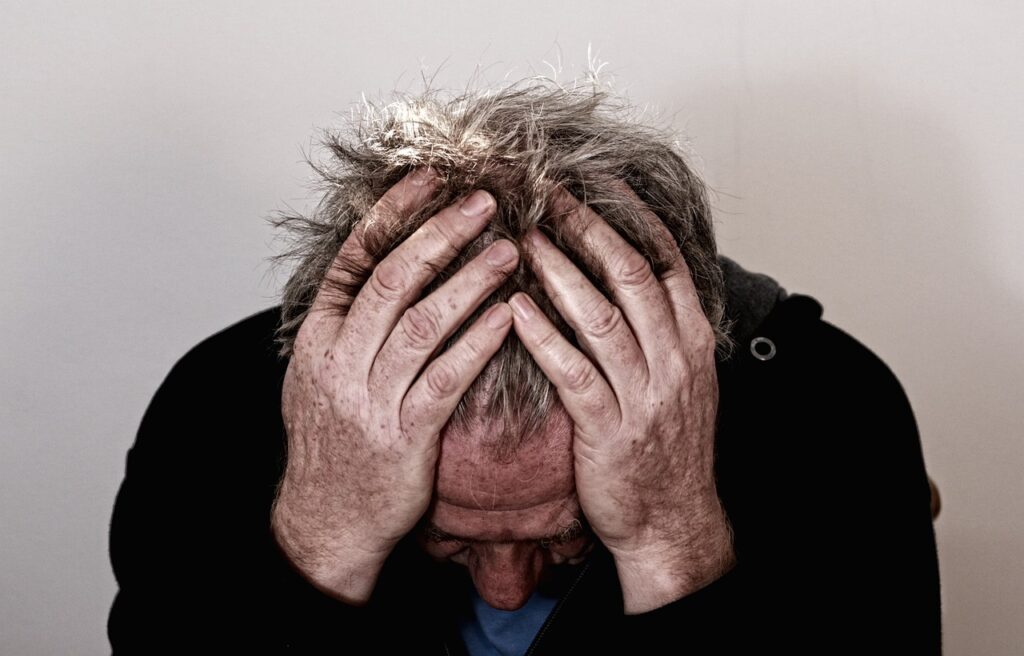20+ Years Experience
Specialist Private Alcohol Rehab

Alcohol intake can provide temporary relief, but it can also contribute to the development or exacerbation of mental health issues.
In this blog post, we will discuss how alcohol affects mental health and explore strategies for reducing alcohol intake to maintain a healthy mind and body.
The relationship between alcohol and mental health is complex.
While drinking alcohol might seem like a way to escape from the symptoms of mental illness, it can also play a significant role in their development or worsening.
Grasping the impact of alcohol on our mental well-being is fundamental for informed decisions about drinking habits.
Contrary to popular belief, alcohol is not a stimulant but a depressant.
It slows down brain functioning and neural activity, disrupting the balance of neurotransmitters in the brain.
This disruption can lead to negative emotions, such as sadness, irritability, and anxiety, as well as impaired cognitive function.
Hence, paying attention to our alcohol intake and contemplating other coping mechanisms is key to addressing emotional needs.
Individuals with mental health issues might turn to alcohol as a form of self-medication, seeking temporary relief from their symptoms.
However, using alcohol to cope with mental health problems can create a vicious cycle of dependency.
Alcohol intake can exacerbate existing mental health conditions and even lead to the development of new ones.
Thus, it’s important to find healthier coping mechanisms and not hesitate to seek professional help when needed to escape this cycle.
In the short term, alcohol use can lead to emotional instability, increased risk-taking behaviour, and impaired decision-making.
These effects can have a significant impact on an individual’s mental health and overall well-being.
Examining the specific short-term effects of alcohol on mental health will provide a clearer understanding.
If you stop suddenly, you may experience withdrawal symptoms. This is why it is always important to speak to a professional if you are thinking about stopping drinking.
Alcohol affects emotions in various ways, such as:
These effects can make it difficult for individuals to manage their emotions effectively.
Furthermore, it can strain relationships and hinder one’s ability to cope with stress and other challenges in their daily lives.
Cognitive function can be impaired by alcohol intake, leading to confusion, memory issues, and poor judgment.
This impairment can affect an individual’s ability to make decisions, assess risks, and concentrate on tasks at hand.
Prolonged alcohol use can even lead to more serious cognitive impairments, such as alcohol-related brain damage, dementia, and Alzheimer’s disease.
For the sake of cognitive health, monitoring alcohol intake and finding healthier ways to handle stress and emotional challenges is recommended.
Chronic alcohol use can have several long-term effects on mental wellbeing, including the development of mental health disorders and the exacerbation of existing conditions.
These long-term effects can significantly impact an individual’s quality of life and overall well-being.
The subsequent subsections will provide a more in-depth exploration of these long-term effects.
Chronic alcohol use can increase the risk of developing mental health disorders such as depression, anxiety, and psychosis, as well as alcohol addiction and alcohol dependence.
Alcohol misuse can further exacerbate these disorders, interfering with daily functioning, relationships, and overall well-being.
Moreover, they often require long-term management and treatment, which can be costly and time-consuming.
Lowering the risk of developing these mental health disorders, as well as other mental health problems, is possible through less alcohol intake and healthier coping mechanisms.
Existing mental health conditions can be worsened by alcohol intake, as it can counteract the benefits of medication and therapy.
For individuals struggling with mental health issues, drinking alcohol can make their symptoms more severe and harder to manage.
Lessening alcohol intake and getting professional help, such as mental health services, can enhance the management of existing mental health issues, improving overall well-being.
Reducing alcohol consumption can have significant benefits for both mental and physical health.
By adopting strategies to limit alcohol intake, individuals can take control of their drinking habits and improve their overall well-being.
The upcoming subsections will outline specific strategies for curbing alcohol misuse, including the promotion of alcohol-free drinks and ways to suddenly stop drinking.
Establishing a limit on alcohol intake and monitoring intake can help individuals maintain control over their excessive alcohol use and avoid binge drinking.
This can be achieved by setting a daily or weekly limit on how much alcohol is consumed, ensuring they don’t drink alcohol excessively, and avoiding situations that may lead to excessive drinking.
Incorporating drink-free days into their routine can also be beneficial in promoting healthier habits.
In addition, seeking support from family and friends can provide accountability and encouragement to stick to these limits.
Engaging in alternative coping mechanisms, such as exercise, meditation, or creative outlets, can help reduce reliance on alcohol for stress relief and emotional regulation.
By incorporating these healthier coping strategies into their daily routines, individuals can improve their mental well-being and reduce their dependence on alcohol and other drugs.
In addition, seeking support from community resources, such as support groups and educational materials, can provide additional assistance with your drink problem and encouragement to stop drinking.
There are various support and resources available for individuals struggling with alcohol-related mental health issues.
Whether you are seeking professional help or looking for community resources, there is assistance available to help you manage your substance abuse and improve your mental health.
The upcoming subsections will examine the various types of support and resources at your disposal.
Seeking help from a healthcare professional, such as a therapist or counsellor, can provide guidance and support for managing alcohol-related mental health issues.
These professionals can help individuals develop personalised treatment plans, provide therapy and counselling, and offer support throughout the recovery process.
If you are struggling with alcohol and mental health concerns, don’t hesitate to reach out to a mental health professional for help.
Community resources, such as free self help groups and educational materials, can offer additional assistance and encouragement for individuals struggling with alcohol and mental health concerns.
By connecting with others who have similar experiences, individuals can gain insight, share coping strategies, and find support in a non-judgmental environment.
Don’t be afraid to seek out these resources and take advantage of the support they can provide.
In this blog post, we have explored the complex relationship between alcohol and depression, discussing both the short-term and long-term effects of alcohol intake.
We have also discussed strategies for reducing alcohol and drug use and the support and resources available to individuals struggling with alcohol-related mental ill health.
Understanding the connection between alcohol and mental health is crucial for making informed decisions about our drinking habits and seeking the necessary help and support to maintain our mental well-being.
Taking control of your alcohol intake and seeking healthier coping mechanisms can lead to a happier, more fulfilling life.
Alcohol affects depression and anxiety as it can make you feel relaxed and less anxious temporarily.
However, these effects wear off quickly and can contribute to increased feelings of anger, depression, or anxiety.
Long-term alcohol use can lead to physical and mental health problems, including liver damage, heart disease, and depression. It can also increase the risk of accidents, violence, and suicide.
Alcohol can make anxiety worse.
Although drinking alcohol may initially provide temporary relief from anxiety, overuse of alcohol can lead to “hangxiety” and worsen any existing anxiety symptoms in the long run.
Therefore, it is important to be mindful and practice moderation when consuming alcoholic drinks as a form of stress relief.
Alcohol can cause mental confusion, as it interferes with the brain’s communication pathways.
Long-term excessive alcohol consumption can lead to thiamine deficiency, resulting in Wernicke-Korsakoff Syndrome (WKS), or “wet brain,” which can cause persistent mental confusion and cognitive difficulties.
Alcohol affects behaviour in numerous ways, such as:
The short-term effects of alcohol on mental health are depression and anxiety.
Alcohol use can lead to emotional instability, risk-taking behaviour and impaired decision-making, resulting in short-term negative effects on mental health.
There are a range of other services that we can provide. Have a look at the list below for more information:


















We Aim To Reply To All Enquiries With-in 24-Hours